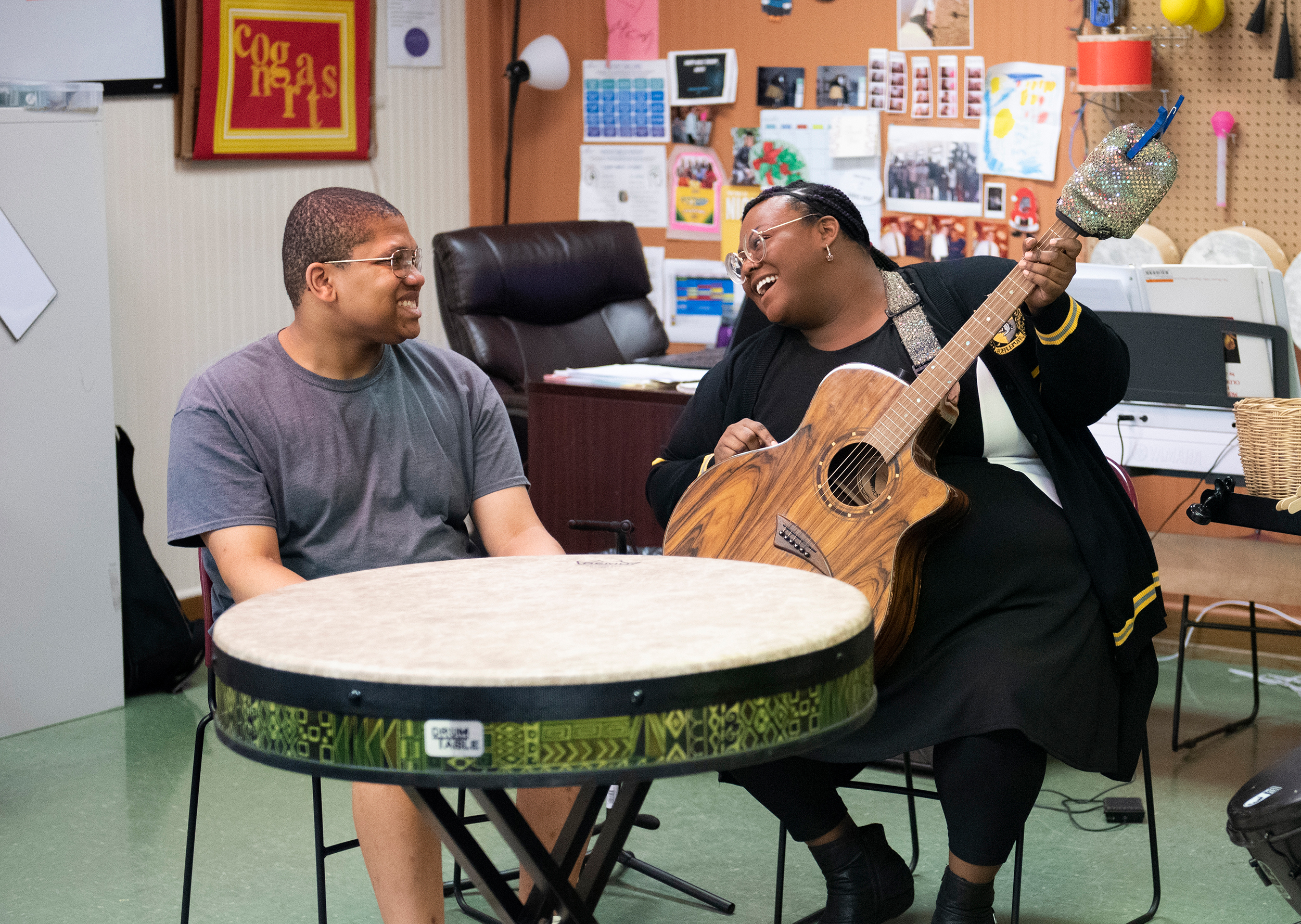Teamwork & Mental Wellness for Behavioral Health Professionals
In recognition of Mental Wellness Month, we sat down with one of our BCBAs (Board Certified Behavior Analysts®), Tyler Long, to learn how Grafton’s Winchester team is making mental health a priority. Long also offers some valuable advice on how behavioral health professionals can safeguard their mental wellness year-round.

When it comes to mental wellness, what lessons can we learn from the Winchester team?
Having supportive coworkers is a huge part of mental wellness, especially when you’re working directly with behavioral health clients. I work as a BCBA for the three Intensive Support Classrooms in Winchester, and our teams do a phenomenal job of understanding each other. We make a point of knowing each other’s triggers and noticing when someone needs a break. For example, if a colleague has been working with the same student for a while, and it’s clear that the child is exhibiting challenging behaviors, that’s when another staff member will know it’s time to step in and switch out.
In Winchester, we also have a safe word that we can use to tell our coworkers when we need a break, and it’s non-negotiable. If someone says “pineapple,” their teammates know it’s time to step in and provide relief. It may seem like a small thing, but being able to take a breather when things get too intense is crucial to maintaining your mental health at work. We all have rough days, but they feel manageable when you have a good team that’s going through it with you. We all have each other’s back.
Can you tell us about a time when you’ve used “pineapple”?
We had a client a couple years ago who was tough, but she could also be really sweet and loving. I had built a good rapport with her, and we laughed a lot and had fun. One day, she just kept grabbing my ankles and trying to bite me. At one point, she grabbed me, and I had to summersault to protect myself. Immediately after, I needed to block her from injuring herself. The combination of protecting myself while also trying to prevent her self-injurious behavior was just becoming too much for me. I wasn’t in a good mindset to keep dealing with this escalated situation, so I said, “Guys, I just need to take a pineapple.” I was able to quickly switch out with a staff member in another part of the building and everything worked out.
Oftentimes, when you have a close-knit team, they will know that you need a break even before you do. A few years ago, I was working with a kid who would spit at me when he was escalated, and spitting is a trigger for me. One of my colleagues saw this student spitting at me and noticed my body language. They immediately stepped in and said, “You can go, I got this!” I was really grateful for that. Sometimes you just need to step back and take a deep breath.
Do you have any communication tips for behavioral health staff?
Having open conversations with your team is important. We all have personal things going on outside of work, and it’s important to leave that at the door, so you can be 100% present for the clients while you’re here. That being said, I encourage people to communicate with their colleagues if they’re having a rough time. If your teammates know something is going on, they can look out for you a bit extra and make sure you’re okay.
Do you have any advice for employees seeking to improve their mental wellness?
We’re always teaching clients coping strategies, but we should also be asking ourselves what coping strategies we should be using. For some people, it’s as simple as taking a hot shower or maybe a bath. The classroom can be pretty loud, so when I’m driving home from work, I like complete silence. Some days, I ask my family for 10 minutes to decompress when I get home.
Positive self-care can work wonders, but if things get too bad, don’t be afraid to seek counseling. I have used Grafton’s free employee counseling when I was going through some things, and I highly recommend it. This is cliché, but it’s okay to not be okay. Everybody has something going on. At Grafton, one of our Foundational Five beliefs is “assume trauma.” I do that not only with our kiddos, but with our staff as well.
Lastly, having self-awareness of how we’re feeling is so important. When we’re interacting with clients, we need to ask ourselves, “Are we calm? Are we relaxed?” If we’re showing our frustrations, the kids will often pick up on our body language. Whenever our clients are at their worst, we have to be at our best. If that means you need to take a “pineapple” and switch out, do it. Once you’ve stepped away, you can take a deep breath and process what just happened. Did you have a good night’s sleep? Do you need to take a mental health day? Do what you need to do, so when you come back, you’re in a better place to help.